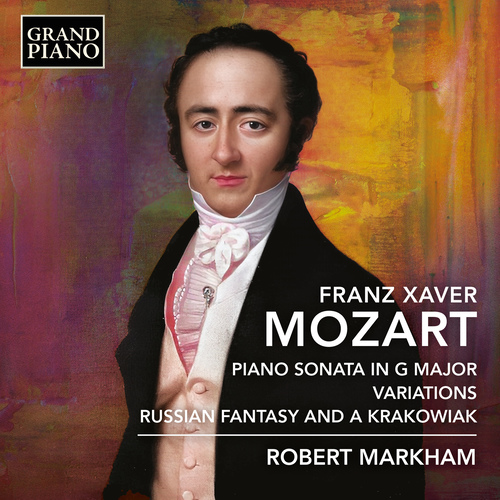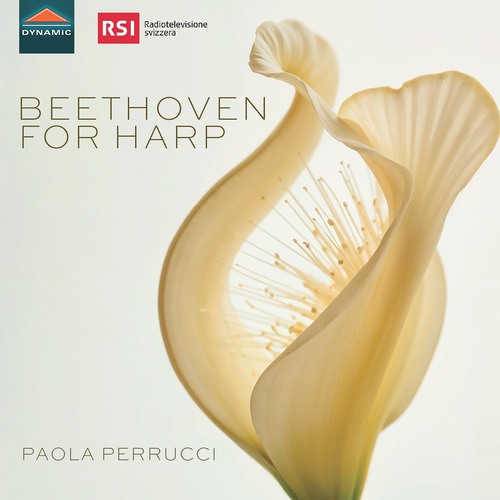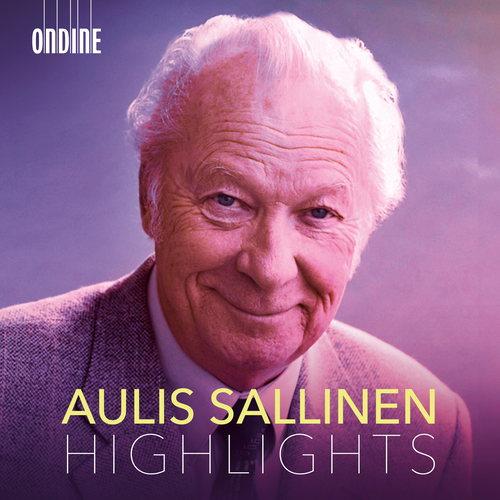The pupils of FRANZ LISZT
Emil von SAUER (1862–1942)
Piano Concerto No. 1
Conrad ANSORGE (1862–1930)
Piano Concerto Op. 28 *
Oliver Triendl
Rundfunk-Sinfonieorchester Berlin
Roland Kluttig
* World premiere recording
Emil von Sauer and Conrad Ansorge had the privilege of studying under the legendary Franz Liszt, who preferred to be known as an advisor, rather than a teacher. Even so, their lessons with the world-famous composer/pianist influenced and developed both their individual styles and extraordinary abilities. This Capriccio recording presents two significant and unjustly forgotten piano concertos by these pupils of Liszt that reflect both their versatility and their deep understanding of musical form and structure.
IV. Rondo
Franz Xaver MOZART (1791–1844)
Piano Sonata in G major
Variations
Russian Fantasy and a Krakowiak
Robert MarkhamFranz Xaver Mozart, who studied with Salieri and Hummel, was a composer-pianist like his father, Wolfgang Amadeus, but inevitably laboured under the weight of huge expectation. This album contains his largest work for solo piano, the Piano Sonata in G major – an assured, distinctive piece that balances dance with drive. His most virtuosic work is the exuberant Fantasy on a Russian Song and a Krakowiak, while his mischievous Variations on a Russian Theme and the variations on his father’s Don Giovanni illustrate Franz Xaver’s great gifts for elaboration and playfulness. Robert Markham, who has conducted research into the life and music of Franz Xaver Mozart, has been hailed as a performer of ‘astonishing lucidity and coherence’ by Musical Opinion.
IV. Rondo: Allegretto
Ludwig van BEETHOVEN (1770–1827)
Beethoven for Harp
Paola PerrucciThe popularity of the harp was significantly increased in the early 1800s by the invention of the chromatic pedal. So popular did the instrument become that Beethoven wrote his Variations on a Swiss Song ‘pour harpe ou piano’. Later, his most popular pieces were arranged, such as the ‘Moonlight’ Sonata, which was virtuosically transcribed by John Thomas, harpist to Queen Victoria. The Divertissements pour la harpe were once thought to be by Beethoven but are possibly by his contemporary and acquaintance, Count Karl Wilhelm von Haugwitz. Leading Italian harpist Paola Perrucci plays on an Érard harp except for the Adagio grazioso from the Piano Sonata No. 16 where she plays on a modern instrument.
Born in 1935, composer Aulis Sallinen has been a key voice in Finnish contemporary music since the 1960s. He rose to national and international prominence notably through his six dramatic operas, composed between 1973 and 1999, not least his fourth opera, Kullervo, which premiered in Los Angeles in 1992. In addition to opera and vocal music, Sallinen has made significant contributions to chamber music through his growing Chamber Music series (a contemporary equivalent to Hindemith’s Kammermusik series), as well as string quartets, sonatas and symphonies. This selection of music from ten of his works celebrates Sallinen's 90th birthday and highlights some of his finest contributions to opera, orchestral and chamber music.




































